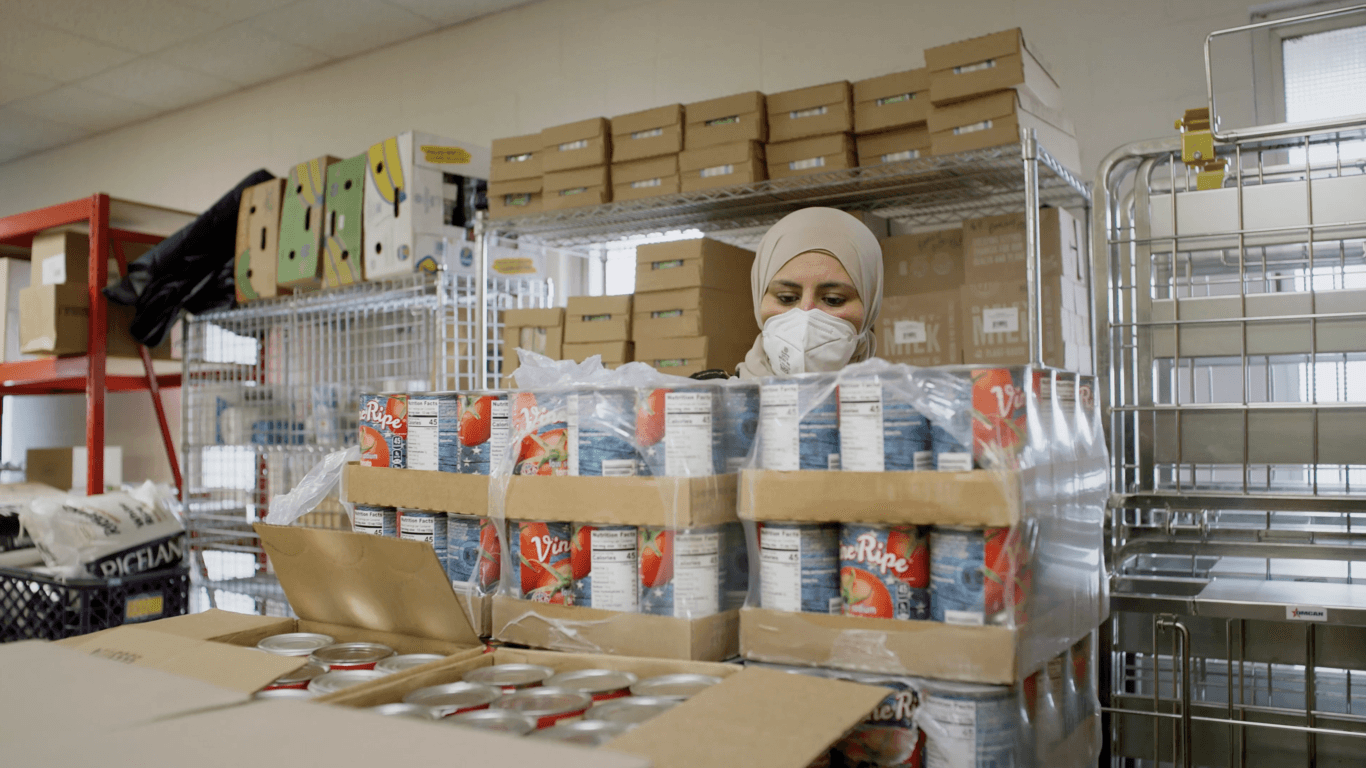Celebrating Arab Heritage Month
Celebrating Arab Heritage Month
April is Arab Heritage Month. This month, Oregon Food Bank honors and celebrates the cultures and contributions of Arab American people and communities. We reaffirm our commitment to dismantling hunger and its root causes, including colonialist ideologies such as racism and xenophobia. We commit to challenge, disrupt and dismantle anti-Arab bigotry this month and year-round.
There is no one single Arab experience. These diverse and rich communities consist of primarily 22 countries of unique cultures and peoples: Algeria, Bahrain, Comoros, Djibouti, Egypt, Iraq, Jordan, Kuwait, Lebanon, Libya, Mauritania, Morocco, Oman, Palestine, Qatar, Saudi Arabia, Somalia, Sudan, Syria, Tunisia, the United Arab Emirates and Yemen. Like many immigrant and refugee communities, many Arab people have migrated to the United States to escape war, religious and political prosecution, and ongoing genocide. United States policies and practices in the region have further facilitated genocide, destabilization and displacement of Arab peoples. Additionally, immigrants and refugees face disproportionate rates of hunger here in Oregon as well.
Israel’s violence against Gaza has exacerbated anti-Muslim and anti-Arab discrimination here in the United States and globally. The Council on American-Islamic Relations (CAIR) reports a “massive influx of reported anti-Arab and anti-Muslim hate attacks: over 1,200 in the first month since October 7 [2023], a 216% increase from the same period in 2022.” They add that this spike exists in a post-9/11 reality, where from 2000 to 2009, hate crimes against Muslims spiked by over 500%.
Systems that drive genocide and displacement — settler colonialism, white supremacy and capitalism — are the same systems that perpetuate hunger and poverty. These systems further inflame poverty, disease and violence against Arab people and nations. A 2021 report from the United Nations Food and Agriculture Organization (FAO) reports that malnutrition in Arab nations increased by 91.1% in the last 20 years. That same year, FAO added that conflicts are the leading causes of hunger in these regions: “53.4 million [Arab] people are facing hunger in countries and areas affected by conflict, which is more than six times higher than in non-conflict countries.”
Over one million Palestinians – which is half of the Gaza Strip – are experiencing starvation at catastrophic rates due to Israel’s war on Gaza. And the normalization of conflict in Arab nations, such as Yemen, causes extreme hunger and poverty. Eighty percent of Yemen’s population lives below the poverty line with 17 million people (half of them being children) in dire need of health assistance due to disease, hunger and climate crisis.
We uplift these truths because when we can see the whole picture of violence and systemic failures, we can more effectively influence policies and laws that dismantle them. Celebrating Arab Heritage Month without acknowledging these atrocities erases Arab people’s ongoing resistance and resilience.
We celebrate Arab people, culture and contributions to our collective experience this month. And we are reminded that there are still peoples and cultures to honor because, despite violence, Arab communities continue to actively resist colonization. Arab communities persist through culture bearing and preservation, joy and hope making, and shared, undying love for Arab lands and peoples. We encourage our communities to deepen our knowledge about Arab people and culture by engaging with the resources and materials below.
Works by Arab Artists and Writers
Local Organizations
Books
How Does It Feel to Be a Problem?: Being Young and Arab in America
The Only Game in Town: Central Banks Instability & Avoiding the Next Collapse
